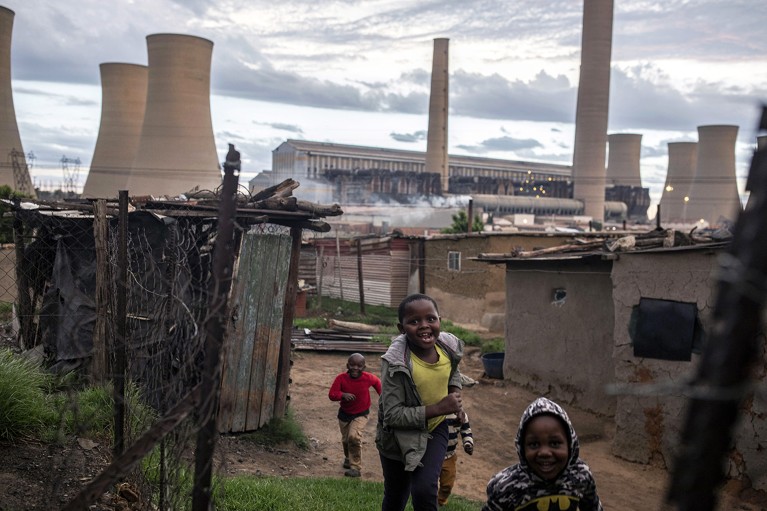- COMMENT
Why coalitions of wealthy nations should fund others to decarbonize

A coal-fired power plant in Komati, South Africa, which was decommissioned in 2022 as part of the country’s plans to phase out fossil fuels. Credit: Per-Anders Pettersson/Getty
Access options
Access Nature and 54 other Nature Portfolio journals
Get Nature+, our best-value online-access subscription
$32.99 / 30 days
cancel any time
Subscribe to this journal
Receive 51 print issues and online access
$199.00 per year
only $3.90 per issue
Rent or buy this article
Prices vary by article type
from$1.95
to$39.95
Prices may be subject to local taxes which are calculated during checkout
Nature 639, 574-576 (2025)
doi: https://doi.org/10.1038/d41586-025-00779-9
References
Bolton, P. & Kleinnijenhuis, A. M. COP29: The Economic Case for a New Common Quantified Goal of Climate Finance (NCQG) at Scale (E-axes Forum on Climate Change, Macroeconomics, and Finance, 2024).
ESABCC. Scaling Up Carbon Dioxide Removals (European Scientific Advisory Board on Climate Change, 2025).
Nordhaus, W. Am. Econ. Rev. 105, 1339–1370 (2015).
Adrian, T., Bolton, P. & Kleinnijenhuis, A. M. The Great Carbon Arbitrage. IMF Working Paper 2022/107 (International Monetary Fund, 2022).
Bolton, P., Kleinnijenhuis, A. M. & Zettelmeyer, J. The Economic Case for Climate Finance at Scale. Policy Brief 09/2024 (Bruegel, 2024).
Rennert, K. et al. Nature 610, 687–692 (2022).
Bilal, A. & Känzig, D. R. The Macroeconomic Impact of Climate Change: Global vs. Local Temperature. NBER Working Paper W32450, rev. 1 (National Bureau of Economic Research, 2024).
Supplementary Information
Competing Interests
The authors declare no competing interests.

 Trump will weaken climate action — the rest of the US must not follow suit
Trump will weaken climate action — the rest of the US must not follow suit
 Drill, baby drill? Trump policies will hurt climate ― but US green transition is underway
Drill, baby drill? Trump policies will hurt climate ― but US green transition is underway
 Why the EU must reset its Green Deal — or be left behind
Why the EU must reset its Green Deal — or be left behind
 How provinces and cities can sustain US–China climate cooperation
How provinces and cities can sustain US–China climate cooperation
 Biases in ‘sustainable finance’ metrics could hinder lending to those that need it most
Biases in ‘sustainable finance’ metrics could hinder lending to those that need it most







